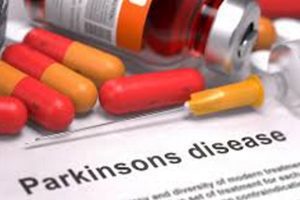
Parkinson’s Treatment Have Risk Of Compulsive Behavior. In identifying a new type brain disorder, Dr. James Parkinson described his first patient as a humble gardener who led a life of “remarkable temperance and sobriety.” Such personality traits, as well as the doctor’s name, are now synonymous with a condition that affects more than 1.5 million Americans. […]

Parkinson’s Treatment Have Risk Of Compulsive Behavior. In identifying a new type brain disorder, Dr. James Parkinson described his first patient as a humble gardener who led a life of “remarkable temperance and sobriety.” Such personality traits, as well as the doctor’s name, are now synonymous with a condition that affects more than 1.5 million Americans.
Since Parkinson’s was discovered, doctors have noticed that a number of people who go on to develop the disease tend to be cautious, morally resolute and uninterested in seeking out new experiences. Indeed, some studies suggest that smokers or alcohol drinkers are at a lower risk for Parkinson’s.
But with the advent of powerful new treatments, researchers have seen a Jekyll and Hyde personality emerge as well. In study after study, patients who are treated for Parkinson’s sometimes exhibit a range of unsettling characteristics, such as gambling, overeating and obsessive compulsive disorders. They may also abuse their medications and even make inappropriate sexual advances.
Overall, these types of behavior are rare. Only about five percent of patients treated for Parkinson’s exhibit such impulse control problems. But these changes can be quite serious, especially if they lead to addiction or sexual harassment.
“There are different levels of severity,” says Dr. Matthew Menza, a professor of psychiatry and neurology at the Robert Wood Johnson Medical School in New Jersey.
Some personality changes can be relatively harmless, such as starting to buy lottery tickets, as one of Menza’s patients did. As long as this doesn’t break the bank, there is little reason to alter treatment, he says. Others, however, may experience a much more dramatic transformation.
“You sometimes see very aggressive sexual impulses,” says Menza. “This can be so out of character with what that person has ever done before.”
Such an odd shift in behavior, while not fully understood, seems to be based on the amount of dopamine circulating in the brain. This chemical is believed to act as a natural reward mechanism, helping to control how we define pleasure.
When dopamine is at a normal level, there is less of a need to seek outside stimulation. But when the chemical is out of kilter, researchers have found the people are prone to all kinds of vices, from obsessive eating to becoming addicted to drugs.
Parkinson’s patients, who gradually lose dopamine because of the disease, have a natural aversion to these types of sensations, Menza says. This can quickly change when a person is given a dopamine-boosting drug.
“The same would probably be true for anyone who tried them,” says Menza.
Those who need these medications face a range of problems. This past fall, a team from the Mayo Clinic found that Parkinson’s patients who have never seriously gambled before were all of a sudden losing thousands of dollars at a casino after starting treatment. More recently, a team at Columbia University found that several of their patients had trouble resisting the urge to eat when taking Parkinson’s medications, causing them to gain significant weight.
Treatment may be only part of the issue. Compared to 100 patients who used Parkinson’s drugs without becoming addicted to them, those who abused their medications were more likely to be younger, drink alcohol, suffer from depression and exhibit more novelty-seeking traits to begin with, a new study from England found.
Attacking the Cause
So what should patients do? First off, experts say, is to recognize such problems exist. Although surgery and a variety of Parkinson’s drugs have been linked to these side effects, the major culprit appears to be the so-called dopamine agonists, such as Requip and Mirapex, which are more potent than other medications. These drugs are favored by younger patients because they have a lower risk of long term complications than Sinemet, the mainstay of Parkinson’s treatment.
Reducing the doses may help, but this raises the risk of uncontrolled tremors, says Menza. Dr. Daniel Weintraub, a professor of psychiatry and neurology at the University of Pennsylvania Medical School, says that the simple answer is to switch from a dopamine agonist to another medication.
For those who experience behavioral changes with treatment, various interventions are known to improve impulse control and fight addiction. Anti-psychotic medications can also help keep such troubling behavior in check. Ultimately, it’s up to the patient to recognize that they are not acting like the person they’ve always been.
“When patients are taken off these drugs, they return to normal,” says Weintraub.
The personal injury attorneys at Parker Waichman LLP offer free, no-obligation case evaluations. For more information, fill out our online contact form or call 1-800-YOURLAWYER (1-800-968-7529).


